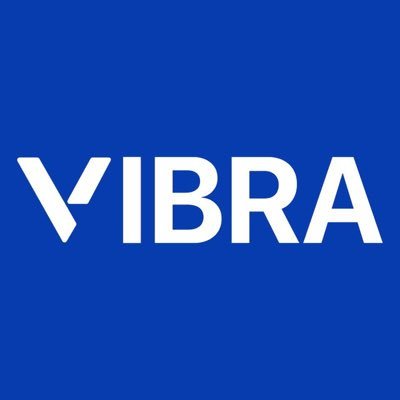Case Study: A Deep Dive into the Demise of Vibra

Rejoice Anodo
December 7, 2024

VIBRA’s Rise and Fall
VIBRA was a cryptocurrency platform, co-founded by Allen Ng and Vincent Li in 2021, that offered trading, impact investing, and investment services. Headquartered in Lagos, Nigeria, the company focused on driving mass adoption of blockchain technology in Africa. It started this mission by launching its app, which is available for download on Android and iOS devices. This mobile app had a user-friendly interface where users could conduct peer-to-peer (P2P) trading with verified merchants.
With education as a core mission, VIBRAAcademy was set up in 2022. #VIBRAInClass was an active offshoot of the education campaign to enable beginners to learn from and network with cryptocurrency experts. Tutors were selected through an assessment form and qualified applicants often held their classes on the VIBRAAcademy Telegram channel and their individual Youtube channels. They stood to gain up to 200,000 naira in four months or 50,000 naira per class, and students could also earn 1,000 naira from each class. The VIBRAnt Stars programme, styled VB Stars, was initiated as part of their partnership goals. It included incentivized referral and mentorship activities.
During the course of their debut year, VIBRA amassed over 25,000 downloads on Android and iOS devices. Their social community grew significantly, with 12,000 members, and Telegram alone housed 4,000 of them.
By the second quarter of 2023, the company's seemingly progressive growth dwindled. In July, there was an official announcement on the discontinuation of VIBRA’s services in Nigeria. On the 14th of the same month, users received emails to this effect. In October, employees were asked to resign or face termination. Key staff, such as the country manager, Hailey Yang, left the company.
Mid-month, VIBRA shut down its operations in Nigeria and other African markets where it previously established operations. An exclusive by TechCabal narrated these incidents in detail. While most of the information was gleaned from unnamed sources, the co-founder, Vincent Li, declined to comment and only shared that the company was currently undergoing a strategic pivot.
Market Analysis
In 2021, the global cryptocurrency market value hit an all-time high at $3 trillion. Growing cryptocurrency adoption presented an opportunity for VIBRA, as more Africans used crypto to make remittances and carry out transactions. They harnessed this by incentivizing activities carried out on their mobile app, social media platforms, and educational content. While this boosted engagement and promoted organic growth, users expected this to be consistent. Macro cryptocurrency trading platforms like Binance have successfully implemented this user conversion strategy.
“Nigerians are very crypto-curious and willing to try new ways to earn money, but they also have huge expectations of crypto companies. Even influencers know this and often make costly demands of crypto-related service providers looking to advertise through them. Nigerians see cryptocurrencies as a path to quick wealth creation. You need to fly out ten people to Dubai to impress them.”
VIBRA’s direct competitors in the African cryptocurrency market included Bitmama, Buycoins Pro, Lazerpay, Pillow, Roqqu and Paxful. Pillow shut down in 2023, followed by BuyCoins Pro and Lazerpay in 2024. Bitmama and Roqqu are still operational and have expanded their respective services. Paxful has a strong presence in the African market and a significant global presence.
Financial Factors that Led to The Fall of Vibra
By the end of 2021, VIBRA raised $6 million in funding, with Dragonfly and Hashkey Capital as leading investors. Between 2021 and 2023, VIBRA had over 100,000 verified agents in their database in Nigeria, Ghana and Kenya. They also established operations in these countries.
In September 2022, they launched the VIBRA Refer and Earn campaign and the VIBRA Africa Ambassador Programme in the following month. In the first quarter of 2023, VIBRA launched VIBRA SEND, an app that allowed users to send and receive cryptocurrency without any fees.
Overall sentiment in the crypto space was hampered after the FTX collapse, and coupled with the decline in user activity, VIBRA’s revenue reduced significantly.
User Experience and Community Impact of Vibra
VIBRA believed in giving back to the community, and as such, they raised initiatives to support this cause. In November 2021, a civil servant won $500 at the VIBRA-sponsored lucky draw at the debut of The Cyclers Concert held in Benin.
During an Ask Me Anything (AMA) session held in December 2021, ten lucky winners received 100 USDT during the giveaway session. Subsequently, a VIBRA Christmas trading raffle draw was held with a 600,000 prize pool. New and existing VIBRA users who purchased a minimum of 11 USDT were also awarded a 5,000 naira prize.
Amidst these, users seemed to have difficulty in completing KYC requirements on the app, making withdrawals and verifying their accounts. Most users aired their views in comment sections and app reviews. There were no public complaints about the app after the shutdown announcement.
Since the shutdown, no updates have indicated that operations have resumed. They seemed to have struggled with financial instability, caused by market volatility and high customer acquisition costs.
However, these could be offset by setting up alternative forms of revenue such as premium membership options, advanced trading tools for verified merchants, and paid educational content for beginners at affordable prices.
This diversified approach would ensure a more sustainable operation, and achieve their goal of encouraging mass crypto adoption.


